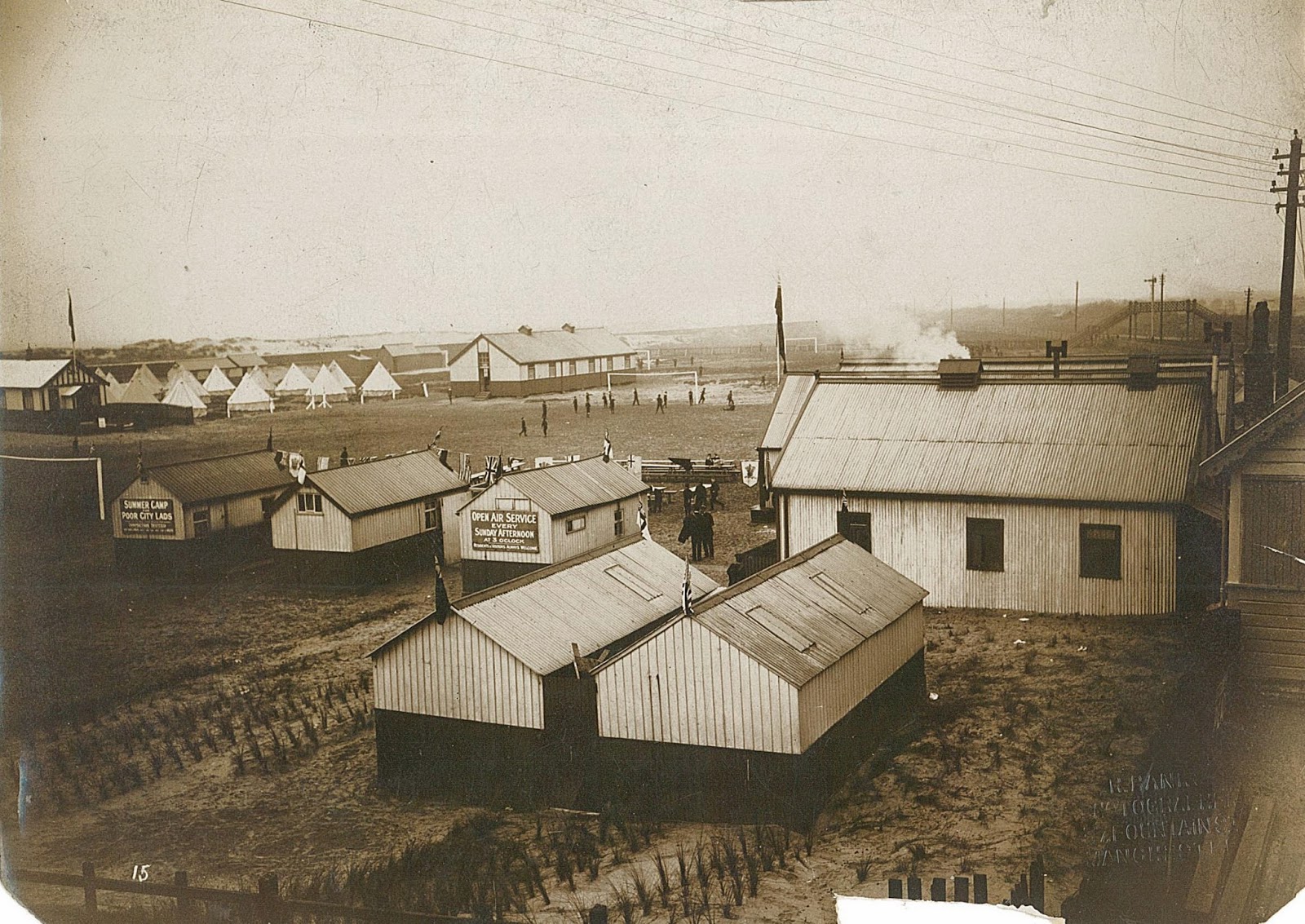A pioneering camp
After the last few days of snow and ice I felt a need for my thoughts to turn to warmer days and the approach of spring (a little premature but a delightful thought all the same!) And what better way to do that then to revert back across to Birkdale and have another look at our dear old summer camp and the thousands of children who were given a much needed break by the seaside.
 |
|
Summer Camp, Birkdale, 1900s
|
The Summer Camp, although a part of the Refuge services, was run almost as a separate identity. It had its own committee (which in itself wasn’t unusual) but the service also issued its own annual report to interested parties. This was a successful venture, a large proportion of subscriptions and donations were allocated to the camp. It ran from the middle of May through to September and was opened every year by the Lord Mayor of Manchester. By 1904 costs ran to about £50 a week, averaging 6 shillings a week per boy.
Although closed temporarily during World War One, and used for the picketing of horses, the summer camp was still deemed to be of use in 1919. Sadly however, of the 200 lads sent out for that first week’s holiday, 174 were found to have lost their fathers in the War.
 |
|
On the swings, c.1930
|
The camp itself took both resident and non resident children. Its importance to the children of Manchester in the late nineteenth and early twentieth centuries cannot be underestimated. To boys who had never seen open space it was an eye-opener. For the first time they dipped their toes into the sea, played games on the wide spacious beaches and most importantly had 3 square meals a day.
Even as conditions in the slum areas improved the camp still proved popular. The Annual Report of 1922 quotes the words of a mother whose child had been to camp:
‘I can never thank you sufficiently for what you have done for my boy. When he arrived home he ran into the house, threw his arms round my neck and kissed me. It is years since he kissed me’.

Comments
Post a Comment
Like to know more about a certain home or period in the Together Trust's history? Why not comment and let us know.
If you have a personal or more specific enquiry please see our 'Contact Us' section at the top of this page to get in touch via email.